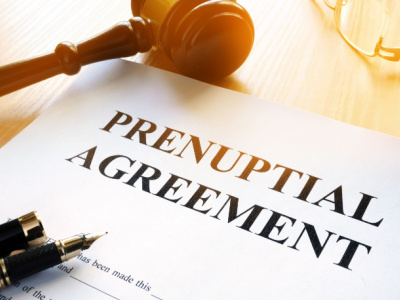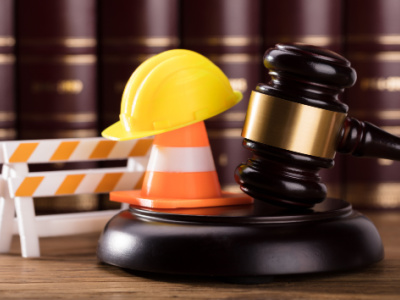Recent Blog Posts
When Can Assault and Battery Lead to Felony Charges in Wisconsin?
 In the state of Wisconsin, assault and battery offenses are taken very seriously. Depending on the circumstances of an alleged offense, an individual may face misdemeanor or felony charges. Felonies carry more severe consequences, including longer prison sentences and higher fines.
In the state of Wisconsin, assault and battery offenses are taken very seriously. Depending on the circumstances of an alleged offense, an individual may face misdemeanor or felony charges. Felonies carry more severe consequences, including longer prison sentences and higher fines.
If you are facing assault and battery charges in Wisconsin, it is crucial to understand when these offenses can lead to felony charges. This knowledge can help you make informed decisions regarding your case. By seeking legal representation from an experienced criminal defense attorney, you can determine your best options for defending against a conviction.
Defining Assault and Battery
Before diving into the specifics of felony charges, it is important to understand what the terms "assault" and "battery" refer to. Assault generally involves actions that cause someone to reasonably fear they will experience imminent bodily harm or death. Battery, on the other hand, involves intentional physical contact that causes bodily harm or injury.
What Issues Can a Prenuptial Agreement Address in Wisconsin?
 A prenuptial agreement, also known as a “prenup” or a marital property agreement, is a legal contract that a couple agrees to before they get married. This type of agreement may address the division of assets and debts or other financial matters in the event of a divorce or separation. While prenuptial agreements are not romantic topics to discuss, they can provide clarity and protection for both parties if their relationship breaks down in the future.
A prenuptial agreement, also known as a “prenup” or a marital property agreement, is a legal contract that a couple agrees to before they get married. This type of agreement may address the division of assets and debts or other financial matters in the event of a divorce or separation. While prenuptial agreements are not romantic topics to discuss, they can provide clarity and protection for both parties if their relationship breaks down in the future.
Property Division
One of the main purposes of a prenuptial agreement is to address the division of property in the event of a divorce or the death of either spouse. Wisconsin is a community property state, which means that any property acquired during the marriage is generally considered marital property and is subject to equal division between the spouses. However, a prenup can override this default rule and allow the couple to address issues related to their property in advance of a divorce or separation.
Wisconsin Supreme Court Addresses Reckless and Intentional Conduct in Insurance Disputes
 There are a variety of situations where disputes about insurance coverage may arise, including cases involving injuries that occurred because of a person's actions. In these situations, insurance companies may deny claims for numerous reasons, claiming that exceptions to coverage apply or that injuries were not accidental. This can put people in a difficult situation as they seek compensation in personal injury cases or similar matters, and they may need to take legal action to fight against the denial of claims. Fortunately for people in these types of cases, the Wisconsin Supreme Court has ruled that cases involving reckless conduct may not necessarily be excluded from insurance coverage.
There are a variety of situations where disputes about insurance coverage may arise, including cases involving injuries that occurred because of a person's actions. In these situations, insurance companies may deny claims for numerous reasons, claiming that exceptions to coverage apply or that injuries were not accidental. This can put people in a difficult situation as they seek compensation in personal injury cases or similar matters, and they may need to take legal action to fight against the denial of claims. Fortunately for people in these types of cases, the Wisconsin Supreme Court has ruled that cases involving reckless conduct may not necessarily be excluded from insurance coverage.
Dostal v. Strand
In a recent case, the Wisconsin Supreme Court considered the denial of an insurance claim made by a woman based on the wrongful death of her child. The woman had left the three-month-old child in the care of its father. While he was providing care, he dropped the child on the floor, resulting in a skull fracture. Rather than contacting emergency services, he put the child to bed. The child later died from the injuries suffered in the fall, and the father was convicted of second-degree reckless homicide.
How Can Litigation Address Issues Affecting Construction Projects?
 Construction projects can involve multiple types of complex concerns. Numerous different parties may play a role in these projects, including property owners, architects, contractors, subcontractors, suppliers, and engineers. With so many moving parts, it is not uncommon for issues to arise during a construction project. These issues can range from contract disputes to construction defects and delays.
Construction projects can involve multiple types of complex concerns. Numerous different parties may play a role in these projects, including property owners, architects, contractors, subcontractors, suppliers, and engineers. With so many moving parts, it is not uncommon for issues to arise during a construction project. These issues can range from contract disputes to construction defects and delays.
Construction litigation is one way to address these issues and seek resolution. By taking legal action, the parties involved in a construction project can protect their rights and interests while seeking compensation for any damages incurred. An attorney who is experienced in matters related to construction law can provide guidance on whether litigation may be necessary or whether there may be other options for resolving disputes.
Wisconsin Supreme Court Rules Against Illegal Property Taxes
For individuals and businesses throughout the state of Wisconsin, property taxes can be a serious issue. The requirement to pay these taxes can place a significant financial burden on property owners, especially when taxes are increased significantly or when other related fees are imposed. In some cases, cities and towns have attempted to levy additional taxes or fees in order to fund utilities, improvements, and other expenses. However, the state of Wisconsin places limits on increases in property taxes. In a recent decision, the Wisconsin Supreme Court addressed attempts by the town of Buchanan to get around these limits, and it forced the town to comply with the levy limits that have been put in place in Wisconsin law.
Wisconsin Property Taxpayers, Inc. v. Town of Buchanan
In 2019, the town of Buchanan sought to increase revenue that would be used to maintain and reconstruct roads in the area. To do so, it used a referendum to allow voters to decide between raising property taxes, putting a special assessment in place, or creating a Transportation Utility Fee (TUF). Voters chose the TUF, and the town put an ordinance in place creating a Transportation Utility District that would be funded by these fees.
Who Can Be Charged With Money Laundering in Wisconsin?
Money laundering is a serious criminal offense. While it is generally classified as a white collar crime that involves financial activities, it is often related to other types of offenses, such as drug trafficking. Because of this, those who are suspected of money laundering are likely to be investigated by law enforcement, and anyone who is involved in illegal transactions or activities may face criminal charges. It is important to understand the specifics of the offense of money laundering and the circumstances that can lead to a conviction. Those who have been accused of money laundering or related offenses can work with a criminal defense attorney to determine how to respond to these charges.
5 Types of Drugs That May Lead to OWI Charges in Wisconsin
 Drunk driving is known to be dangerous, and drivers who get behind the wheel after drinking alcohol could be pulled over and arrested on criminal charges. However, operating while intoxicated (OWI) charges are not limited to alcohol impairment alone. In the state of Wisconsin, driving under the influence of intoxicating drugs is also a serious offense that can result in severe consequences. Following an arrest for OWI due to the use of drugs, it is important for a person to secure representation from an attorney who has experience handling these types of cases. An OWI defense lawyer can assist with cases involving drugs such as:
Drunk driving is known to be dangerous, and drivers who get behind the wheel after drinking alcohol could be pulled over and arrested on criminal charges. However, operating while intoxicated (OWI) charges are not limited to alcohol impairment alone. In the state of Wisconsin, driving under the influence of intoxicating drugs is also a serious offense that can result in severe consequences. Following an arrest for OWI due to the use of drugs, it is important for a person to secure representation from an attorney who has experience handling these types of cases. An OWI defense lawyer can assist with cases involving drugs such as:
Marijuana
Marijuana, also known as cannabis or weed, is one of the most commonly used illicit drugs in Wisconsin. Despite its legalization in multiple other states, including the neighboring states of Illinois and Michigan, marijuana remains illegal for recreational use in Wisconsin. If a person operates a vehicle while under the influence of marijuana, they can be charged with an OWI.
Wisconsin Supreme Court Addresses Integrated Systems Rule in Construction Litigation
There are a variety of situations where construction litigation may be necessary to address issues such as shoddy workmanship, defective materials, or other problems that lead to property damage. One factor that played a role in Wisconsin construction litigation cases was known as the "integrated systems rule." This rule stated that insurance coverage for property damage would only apply if damage occurred to "other property." However, a recent ruling by the Wisconsin Supreme Court has rejected this rule. This ruling may affect other types of construction litigation cases and ensure that contractors, suppliers, or those responsible for property damage are held liable.
5 Walworth, LLC v. Engerman Contracting, Inc.
In the case of 5 Walworth, LLC v. Engerman Contracting, Inc., a property owner in Lake Geneva hired a contractor to construct an in-ground swimming pool complex. This contractor, Engerman Contracting, Inc., hired a subcontractor, Downes Swimming Pool Co., Inc., to perform the construction. Downes hired a supplier, Otto Jacobs Company, to supply shotcrete, a ready-mixed concrete used in the construction of the pool. However, after the pool construction was finished, leaks were found. Over the course of several years, attempts were made to repair the leaks. Eventually, it was determined that the leaks would continue to develop and get worse over time. As a result, the property owner was forced to demolish and rebuild the pool.
What Factors Will Affect Spousal Support in a Wisconsin Divorce?
The divorce process can be difficult regardless of the reasons why a marriage is ending, the level of conflict between the spouses, or the complexity of the issues that will need to be addressed. Moreover, there are some situations where a spouse may be uncertain how they will provide for themselves after the marriage has ended, because the other spouse had a substantially higher income. If that is the case, spousal support (alimony) may be appropriate. Alimony, known as spousal maintenance in Wisconsin, is awarded by the court when it determines that payments should be made by one spouse to the other during or after a divorce. In cases where spousal maintenance is ordered, it is important to understand the factors that may be considered in assessing spousal maintenance and the steps one can take to protect financial interests.
When Is Fiduciary Litigation Necessary in Probate Cases?
 By: Attorney John McNally and Law Clerk Nancy Cattani
By: Attorney John McNally and Law Clerk Nancy Cattani
Death is an inevitable part of life, but dealing with the aftermath of a person's death can be a challenging and emotional experience for their loved ones. When a person passes away, their estate will typically pass through probate court to ensure their debts are paid, their assets are distributed according to their wishes, and their affairs are wound up properly. However, disputes can arise during the probate process, especially if the decedent’s intentions were not clear or if disagreements arise among heirs, beneficiaries, or creditors. In some cases, family members or other beneficiaries may believe that an estate was mismanaged or that a person's assets were not distributed correctly. In these situations, fiduciary litigation may be necessary, and interested parties may take action against a party, such as an executor or trustee, for failing to properly execute their fiduciary duties.

 By
By  By
By 





